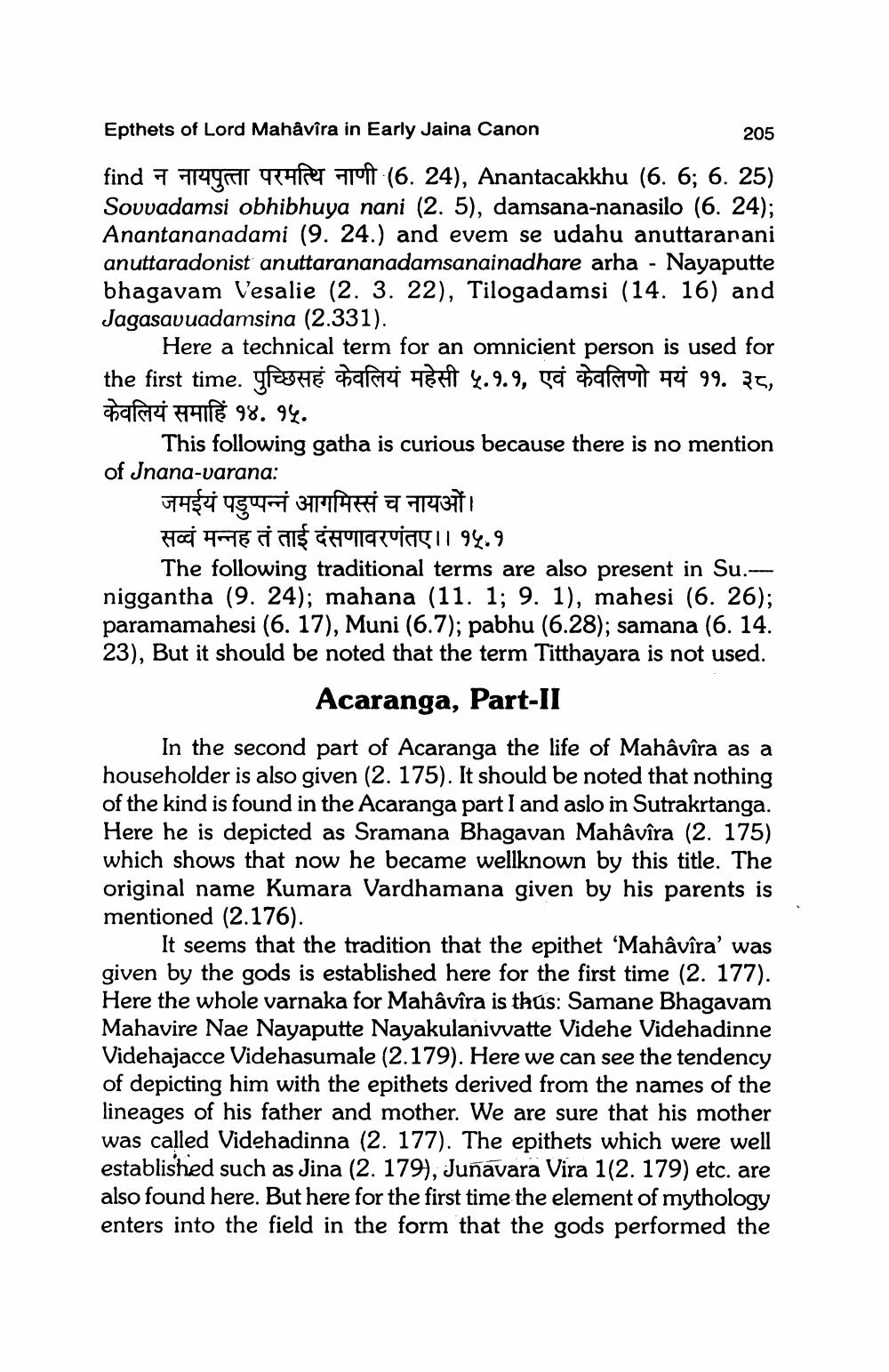________________
Epthets of Lord Mahâvîra in Early Jaina Canon
find (6. 24), Anantacakkhu (6. 6; 6. 25) Sovvadamsi obhibhuya nani (2. 5), damsana-nanasilo (6. 24); Anantananadami (9. 24.) and evem se udahu anuttaranani anuttaradonist anuttarananadamsanainadhare arha - Nayaputte bhagavam Vesalie (2. 3. 22), Tilogadamsi (14. 16) and Jagasavuadamsina (2.331).
Here a technical term for an omnicient person is used for the first time. पुच्छिसहं केवलियं महेसी ५.१.१, एवं केवलिणो मयं ११. ३८, केवलियं समाहिं १४. १५.
This following gatha is curious because there is no mention of Jnana-varana:
जमईयं पडुप्पन्नं आगमिस्सं च नायओं।
सव्वं मन्नह तं ताई दंसणावरणंतए।। १५.१
205
The following traditional terms are also present in Su.-niggantha (9. 24); mahana (11. 1; 9. 1), mahesi (6. 26); paramamahesi (6. 17), Muni (6.7); pabhu (6.28); samana (6. 14. 23), But it should be noted that the term Titthayara is not used.
Acaranga, Part-II
In the second part of Acaranga the life of Mahâvîra as a householder is also given (2. 175). It should be noted that nothing of the kind is found in the Acaranga part I and aslo in Sutrakrtanga. Here he is depicted as Sramana Bhagavan Mahâvîra (2. 175) which shows that now he became wellknown by this title. The original name Kumara Vardhamana given by his parents is mentioned (2.176).
It seems that the tradition that the epithet 'Mahâvîra' was given by the gods is established here for the first time (2. 177). Here the whole varnaka for Mahâvîra is thus: Samane Bhagavam Mahavire Nae Nayaputte Nayakulanivvatte Videhe Videhadinne Videhajacce Videhasumale (2.179). Here we can see the tendency of depicting him with the epithets derived from the names of the lineages of his father and mother. We are sure that his mother was called Videhadinna (2. 177). The epithets which were well established such as Jina (2. 179), Junavara Vira 1(2. 179) etc. are also found here. But here for the first time the element of mythology enters into the field in the form that the gods performed the




